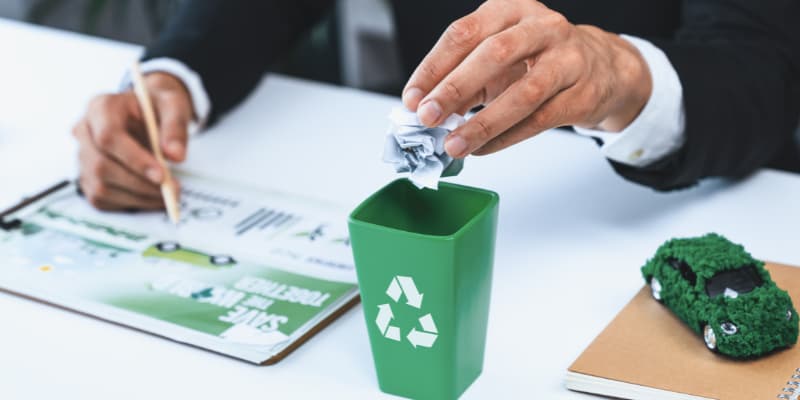Hiring a skip is a convenient way to dispose of waste, but not everything can be thrown in. UK waste disposal regulations restrict certain items due to environmental, health, and safety concerns. Understanding these rules and what can’t go in a skip can save you time, money, and potential fines.
Why Are Some Items Restricted?
Some materials are classified as hazardous or require specialist disposal to prevent harm to people and the environment. Councils and waste management authorities enforce strict guidelines to ensure waste is handled responsibly. Incorrect disposal of restricted waste can lead to contamination, legal penalties, and higher costs for removal.
Hazardous Waste and Why It’s Banned from Skips
Certain waste materials pose significant risks and require specialist handling. Asbestos, for example, is highly dangerous and must only be removed by licensed professionals. If you suspect asbestos in your waste, it’s crucial to contact a specialist rather than risk improper disposal.
Batteries are another restricted item, as they contain toxic chemicals and heavy metals that can harm the environment. Car batteries, household batteries, and industrial versions should all be taken to designated recycling centres instead of being thrown into a skip.
Aerosols are also prohibited due to their pressurised contents, which can explode under high temperatures. These should be taken to hazardous waste facilities rather than mixed with general rubbish. Similarly, fluorescent tubes and bulbs contain mercury, which is hazardous to both people and wildlife, requiring safe disposal at specialist recycling facilities.
Paint, solvents, and oil-based products such as gas cylinders, paint tins, and motor oil are classified as hazardous due to their flammability and toxicity. Any leftover paint or similar materials should be taken to a local recycling centre instead of a skip to prevent environmental contamination.
Electrical Waste and the WEEE Directive
Under the Waste Electrical and Electronic Equipment (WEEE) Directive, electrical goods must be processed separately to avoid landfill contamination. Items such as fridges and freezers contain harmful refrigerants that need expert disposal. Old televisions, computer monitors, and microwaves can contain mercury, lead, and other hazardous substances that require careful handling at designated facilities.
If you need to dispose of computers or laptops, it’s important to do so securely to protect personal data. Many recycling centres and electronic stores offer take-back schemes for safe and compliant disposal.
Other Items That Require Special Disposal
Aside from hazardous and electrical waste, several other materials are commonly restricted from skips. Tyres, for example, cannot be disposed of in standard waste streams and should be taken to specialist recycling centres.
Mattresses also require extra handling due to their mixed material composition. Many skip hire companies charge additional fees for mattress disposal, or they may direct you to a facility that processes them separately.
Plasterboard is another material that needs separate disposal, as it releases hazardous gases when mixed with general waste. If you have large amounts of plasterboard from renovations, it’s best to speak to your skip hire provider about the correct way to dispose of it.
Artificial grass, often made from synthetic plastics and rubber, is another item that cannot be put into a skip. Many councils offer special disposal services for artificial turf, so it’s worth checking with your local authority for options.
Similarly, medical waste and pharmaceuticals such as syringes and unused medicines must be taken to designated medical waste disposal points to avoid contamination risks.
What Should You Do with Restricted Waste?
If you have items that can’t go in a skip, we can help you find alternative disposal solutions. Our team can arrange specialist waste collection for hazardous materials, electrical waste, and items requiring separate recycling.
Need further advice on what can’t go in a skip? Call us today on 0330 660 0832
What Can You Put in a Skip?
While some materials are restricted, many common waste types can be disposed of in a skip. General household waste, non-hazardous materials, and items such as wood, metal, plastic, and furniture can be safely placed in a skip. If you’re working on a renovation, bricks, rubble, and non-hazardous construction waste are also acceptable. Garden waste, including soil, branches, and leaves, can typically be disposed of without issue.
If you’re unsure whether an item can go in a skip, speak to our waste management experts. We’re here to make waste disposal simple, compliant, and hassle-free.

